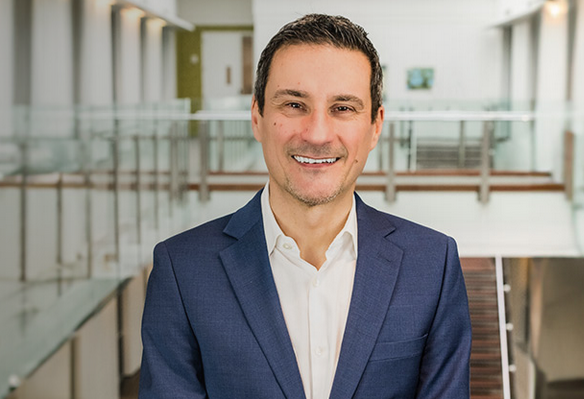TOKYO & BASKING RIDGE, N.J. — Daiichi Sankyo and AstraZeneca announced new results from the Phase 3 DESTINY-Gastric04 trial showing that ENHERTU® (trastuzumab deruxtecan) significantly improved overall survival in patients with previously treated HER2-positive unresectable or metastatic gastric or gastroesophageal junction cancer. The findings were presented at the 2025 American Society of Clinical Oncology (ASCO) Annual Meeting and simultaneously published in The New England Journal of Medicine.
In the trial, ENHERTU reduced the risk of death by 30% compared to the standard second-line treatment of ramucirumab plus paclitaxel. Median overall survival was 14.7 months for patients receiving ENHERTU, versus 11.4 months for those on ramucirumab plus paclitaxel. The hazard ratio for overall survival was 0.70, with a statistically significant p-value of 0.0044.
Progression-free survival also improved with ENHERTU, showing a 26% reduction in the risk of disease progression or death. Patients treated with ENHERTU had a median progression-free survival of 6.7 months, compared to 5.6 months in the control group. The objective response rate was notably higher in the ENHERTU group at 44.3%, including seven complete responses, compared to 29.1% in the ramucirumab plus paclitaxel arm. The median duration of response was 7.4 months versus 5.3 months, respectively.
Lead investigator Dr. Kohei Shitara of the National Cancer Center Hospital East in Japan noted that the trial’s results may establish ENHERTU as a global second-line standard of care for HER2-positive gastric cancer. He emphasized the urgent need for more effective treatments, given the low five-year survival rate in advanced gastric cancer.
The safety profile of ENHERTU in this study was consistent with previous trials. The most common grade 3 or higher treatment-related adverse events included neutropenia (28.7%), anemia (13.9%), and thrombocytopenia (8.6%). Interstitial lung disease or pneumonitis occurred in 13.9% of patients treated with ENHERTU, mostly at low grades, with only one grade 3 case reported. In the comparator arm, 1.3% of patients experienced ILD or pneumonitis, including two grade 3 events and one fatal case.
Dr. Ken Takeshita, Global Head of R&D at Daiichi Sankyo, highlighted that this is the first time a HER2-targeted therapy has demonstrated a survival benefit in a randomized Phase 3 setting for second-line gastric cancer. He added that Daiichi Sankyo is now evaluating ENHERTU in earlier lines of therapy through ongoing Phase 3 trials.
AstraZeneca’s Chief Medical Officer Dr. Cristian Massacesi echoed the significance of the findings, noting the poor outcomes typically seen in patients after first-line therapy and how ENHERTU’s performance represents a meaningful advancement in care.
ENHERTU is currently approved in over 70 countries for use in second- or third-line HER2-positive metastatic gastric cancer based on earlier Phase 2 studies. The DESTINY-Gastric05 and ARETEMIDE-Gastric01 trials are now underway to assess its use as a first-line treatment.
In DESTINY-Gastric04, most patients had not received prior immune checkpoint inhibitors, and over 70% had two or more metastatic sites. Median follow-up was 16.8 months for the ENHERTU group and 14.4 months for the control group. At the time of data cut-off in October 2024, approximately 19% of patients in both arms remained on treatment. Notably, about one-fifth of patients in the control arm later received ENHERTU as post-trial therapy.
These findings further solidify ENHERTU’s growing role in the treatment landscape for HER2-positive cancers and underscore its potential to improve survival outcomes in a difficult-to-treat patient population.


